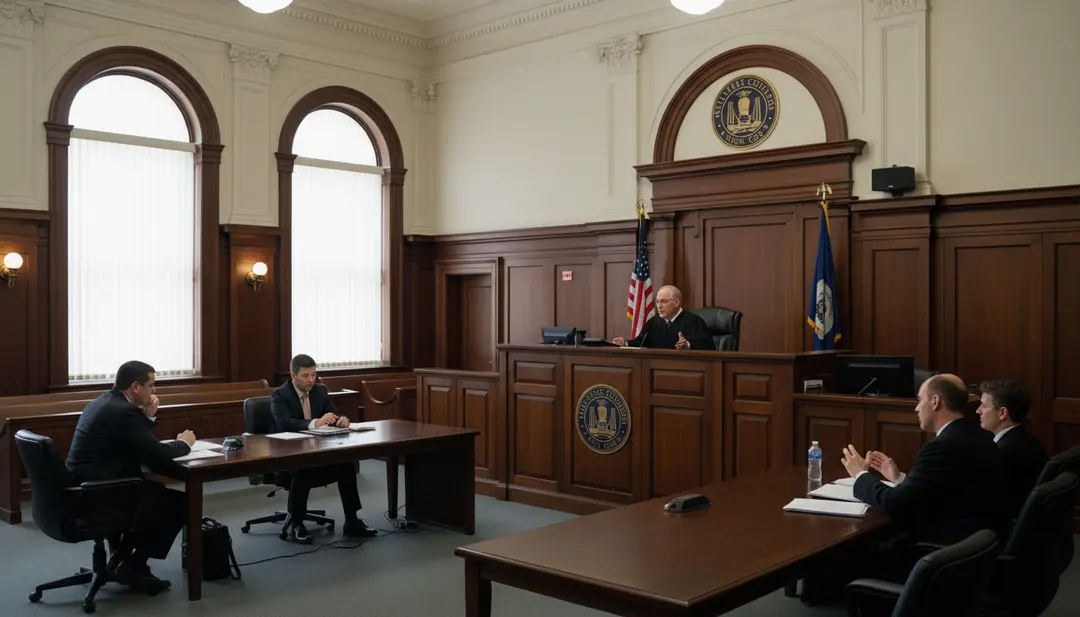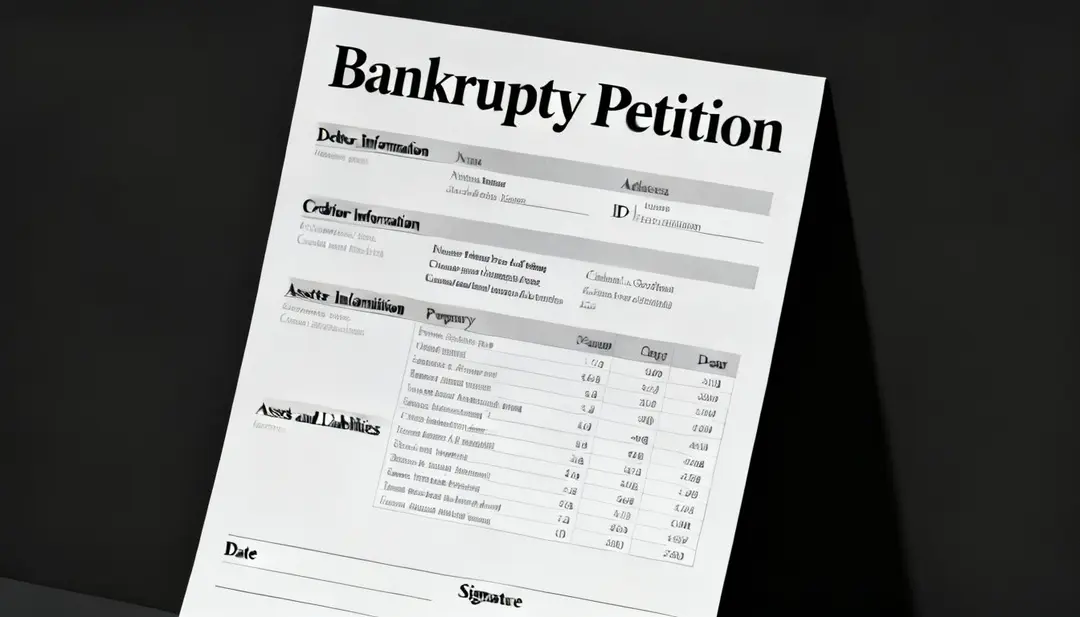Parking Violations and HOA Fines: Arizona Boards’ Best Practices for Fair and Legal Enforcement
Parking violations and HOA fines affect more than just where neighbors park—they shape the peace and order of your whole community. As a board member, you need fair and practical processes to handle these issues. Clear enforcement not only protects property values but also helps everyone feel heard and respected.
HOA boards across Arizona rely on expert support to navigate enforcement. An experienced Arizona HOA Attorney, Phoenix HOA Lawyer, or Tucson HOA Attorney adds clarity and confidence when conflict arises. At Halk, Oetinger, and Brown, you get experienced attorneys and a flat rate general counsel service that aligns with the needs of today’s communities. In this post, you’ll learn how best practices keep your enforcement efforts effective, fair, and compliant with Arizona law.
Understanding Legal Foundations for Parking Enforcement and HOA Fines
Arizona’s HOA communities depend on structured guidelines and enforceable rules to promote order, safety, and respect among residents. When it comes to parking violations and HOA fines, the ability of a board to enforce these standards is not just based on practicality—it's rooted in state statutes, local ordinances, and well-crafted governing documents. Understanding this legal foundation helps your board set reliable expectations, apply rules consistently, and limit exposure to costly disputes.
State and Local Laws Shape HOA Authority
Arizona law gives HOAs the authority to regulate parking and issue fines, but this power is not limitless. The Arizona Planned Communities Act and the Arizona Condominium Act spell out the boundaries for what HOAs can and cannot do. Local city ordinances and county codes may also impact how parking rules can be enforced, especially for planned communities built around public streets.
It's vital for your board to regularly review these statutes and any updates from the legislature. State bills like HB 2298 have recently changed how much control HOAs have over public roads in their neighborhoods. By staying informed and working with an experienced Arizona HOA Attorney, your association can reduce the risk of running afoul of the law. For a deeper look into statutory impacts, see the Impact of Local Regulations on Arizona HOAs.
Governing Documents as the Rulebook
Your HOA’s CC&Rs, bylaws, and rules set the standards for parking and fine enforcement. These documents must not only align with Arizona law but also provide clear, enforceable guidelines residents understand. If your documents are vague or outdated, you risk inconsistent enforcement and potential legal challenges.
Key document elements should include:
- Clearly defined parking restrictions, compliant with Arizona laws.
- Transparent fine schedules and appeal processes.
- Notice provisions for suspected violations.
- Definitions for what counts as a violation and which parking areas are regulated.
- Steps for dispute resolution.
Periodic review of these documents with a Phoenix HOA Lawyer or Tucson HOA Attorney ensures your enforcement foundation is strong and up to date. This minimizes conflicts and confusion that can arise if the board, homeowners, or property managers have different interpretations of the rules.
Ensuring Consistent and Fair Enforcement
Once your rules are grounded in state law and your documents are updated, consistency is the next step. Consistency means enforcing the rules the same way every time, for every resident. Boards that make exceptions or overlook specific infractions can unintentionally expose themselves to claims of unfair treatment or discrimination.
The most effective boards:
- Document all reported violations and communications.
- Apply fines and notices by the book—never selectively.
- Stay open to feedback, but stick to the process outlined in your documents.
- Address violations promptly rather than letting issues linger.
Working with Effective Covenant Enforcement by Arizona HOA Boards provides helpful strategies for boards to create and maintain accountability in their communities.
Role of Legal Counsel in Enforcement
Your board does not have to face compliance questions alone. Partnering with a dedicated Arizona HOA Attorney, or seeking guidance from a Phoenix HOA Lawyer or a Tucson HOA Attorney, positions your board to enforce rules efficiently and legally. Legal counsel helps:
- Review and update governing documents.
- Interpret new state or local laws.
- Advise on how to document violations and handle disputes.
- Represent your HOA if legal action becomes necessary.
By building a relationship with experienced legal advisors like Halk, Oetinger, and Brown, you know your parking violations and HOA fines process is both fair and legally sound. Their focus on fixed-rate services takes the guesswork out of legal expenses, making legal guidance accessible for your community.
Understanding and consistently applying the legal foundations for parking enforcement and HOA fines will help any Arizona HOA board improve community compliance, reduce tension, and protect both property values and your association’s reputation.
Key Components of Effective Parking Policies
An effective parking policy supports the community’s goals and reduces confusion about what’s allowed. For Arizona HOAs, the right approach can help resolve disputes and keep things fair. When you set clear rules and seek feedback from your neighbors, you strengthen compliance and trust—making parking violations and HOA fines less likely to disrupt your community.
Drafting Clear and Enforceable Parking Rules
Good parking rules are specific, direct, and easy to understand. Ambiguity leads to disputes, frustrated residents, and inconsistent enforcement. Strong policies include these core elements:
- Specific Vehicle Types: State which vehicles are restricted. For example, “Commercial vehicles longer than 18 feet are prohibited from being parked overnight in common areas.” Avoid general directions such as “No commercial vehicles allowed,” since this leaves room for interpretation.
- Designated Parking Areas: Spell out exactly where residents and guests can park. For example, “Guests must use visitor spaces marked with a ‘V’ at all times.” Instead of saying “parking is available for guests,” give clear, concrete directions.
- Time-based Limits: Set precise timeframes for restrictions. “No street parking is allowed between 2:00 AM and 5:00 AM, seven days a week.” This removes any guesswork.
- Notice and Fine Procedures: Detail the process for issuing violation notices and fines. Example: “A written warning will be issued upon the first violation. If not resolved in 48 hours, a $50 fine will be assessed.”
- Definitions: Include definitions for key terms such as “common areas,” “resident vehicles,” or “overnight parking” to prevent confusion.
Clear parking policies leave no gray areas. For a practical walk-through on how Arizona HOAs can establish effective rules, review Establishing parking rules in Arizona HOA. You’ll find more examples and insights to keep your rules clear and enforceable.
Balancing Resident Needs and Community Interests
The best parking policies respect both individual needs and the common good. Boards in Arizona should focus on transparency and open channels of communication before locking in new rules or changes.
To find balance:
- Hold Community Meetings: Give residents an opportunity to voice concerns or propose solutions. Meetings foster a sense of inclusion and reduce feelings of top-down governance.
- Surveys and Feedback Forms: Use simple surveys or online forms to collect input. Ask about visitor parking needs, special accommodations, or problem spots.
- Transparent Rulemaking: Before finalizing any rule, share drafts via email or newsletter. Let residents see what’s being proposed and why.
- Accessible Information: Keep all rules and policies in one place, such as a community website or printed handbook.
Proactive boards build credibility when they show they care about every voice. Consistent two-way communication allows you to catch issues early, adapt parking policies as your community changes, and avoid unnecessary conflict.
For more strategies on gaining trust and improving HOA rule adherence, see Improving HOA Rule Compliance. An informed and engaged community stands behind enforcement, making it easier to handle parking violations and HOA fines fairly.
Working closely with an Arizona HOA Attorney, Phoenix HOA Lawyer, or Tucson HOA Attorney helps you follow best practices and stay on top of legal changes. With clear rules and strong feedback loops, your parking policies will protect community interests while respecting the needs of individual residents.
Handling Parking Violations: Proper Notice and Due Process
Clear rules alone won’t protect your community from misunderstandings about Parking Violations and HOA Fines. How you handle violations day-to-day—especially providing notice and offering fair hearings—shapes owner trust in the board. When you follow Arizona law and act transparently, you limit friction and avoid costly mistakes.
Providing Notice and Opportunity to Cure: Clarify legal requirements for first and subsequent violation notices. Emphasize timelines and transparency.
Timely, transparent notice is the cornerstone of fair enforcement. Arizona law requires HOAs to notify owners of violations with enough detail to understand what happened and what comes next. The first notice must spell out the alleged parking violation and give the owner time to cure—often at least 21 calendar days—before any fine is charged.
A well-drafted notice should include:
- A clear description of the parking violation, including date, time, and location.
- The specific rule or section of the CC&Rs allegedly violated.
- The amount of any potential fine if not resolved.
- A description of how the owner can fix the issue or contest the charge.
- Contact information for follow-up.
If the violation continues after the cure period, a second notice or a hearing invitation is typically required before the board imposes a fine. This step-by-step approach—notice, chance to fix, then consequence—protects owners and builds goodwill, even when issues arise.
Staying consistent with both the law and your own documents matters. For a deeper breakdown of demand letters and compliance timelines, check the Final Demand Letters Guide. This helps ensure your enforcement process stands up in court and earns the respect of your members.
Holding Fair Hearings and Board Review: Describe best practices for unbiased hearings, board review, and final decisions on fines.
An unbiased hearing is more than an agenda item—it’s a critical step that gives everyone a voice. When residents feel their side is heard, even a disagreement stings less. Arizona HOAs should offer owners a reasonable chance to appear before the board (either in person or virtually) to explain or contest alleged parking violations and HOA fines.
Best practices for board hearings and reviews include:
- Scheduling the hearing at a time convenient for both the board and the owner.
- Providing a written agenda and sharing all evidence before the meeting.
- Ensuring board members haven’t already formed opinions or have conflicts of interest.
- Allowing the owner to bring witnesses or submit documents supporting their side.
- Respectful listening, with a chance for questions and answers.
After the hearing, the board should meet privately to reach a decision based only on the evidence. Their final decision should be shared in writing, with a clear explanation and information about any right to appeal.
Consider working with a Phoenix HOA Lawyer or Tucson HOA Attorney when developing your hearing process. They can help you refine your policies, making sure they hold up under scrutiny. For help managing fine collections after a fair process, see how assessment and collection services can benefit your association without hidden fees.
Sticking to these steps each time shows your board’s commitment to fair treatment—a foundation for productive conversations, fewer disputes, and a stronger community. When your residents see process and fairness, they’re more likely to trust board decisions, even when outcomes aren’t in their favor.
Best Practices for Imposing and Collecting HOA Fines
Efficient handling of Parking Violations and HOA Fines reflects your board’s ability to keep the community fair and organized. Imposing and collecting fines isn’t just about discipline—it’s about consistency, transparency, and building resident trust. Arizona boards must document their steps and communicate clearly to avoid unnecessary disputes or claims of unfairness. Here’s how you can strengthen your board’s approach.
Ensuring Consistency in Fine Application
Consistency is the backbone of credible enforcement. If residents see that some violations lead to fines while others don’t, confidence in the HOA process erodes fast. The most effective boards create and follow clear steps for documenting violations and fines every time.
To apply fines uniformly and guard against claims of discrimination or favoritism:
- Document Every Violation: Use a consistent form or online system to log when, where, and how a parking violation occurs. Each entry should include the rule broken and any relevant notes.
- Photographic Evidence: Snap a photo of the violation (e.g., a car parked in a fire lane) whenever possible. Visual evidence reduces dispute risk.
- Chronological Records: Keep a timeline for each violation from first notice through resolution or appeal. Accurate records prove that you applied the same process to everyone.
- Secure Storage: Store violation records securely but make them accessible for legitimate board review or resident inquiry.
Maintaining these records safeguards your HOA if an owner tries to contest a fine or alleges selective enforcement. Following best practices in HOA records retention guide strengthens your position if you need to defend your actions later.
If you sense that documenting violations is getting inconsistent, review your enforcement procedures with an Arizona HOA Attorney, a Phoenix HOA Lawyer, or a Tucson HOA Attorney to ensure your system holds up under scrutiny.
Communicating Fines and Supporting Documentation
Swift, detailed communication is key when notifying residents about Parking Violations and HOA Fines. Written notice not only builds trust but also gives homeowners the facts they need to respond appropriately. Boards that provide clear documentation run into fewer disputes and enhanced compliance.
Here’s how to communicate fines and back up enforcement decisions:
- Written Notice: Deliver a notice letter or email outlining exactly what happened and which rule was violated. Include dates, times, and locations for complete clarity.
- Attach Supporting Evidence: When possible, provide copies of photos, security reports, or logs that document the violation.
- Explain the Fine: State the amount and the basis for the fine, linking it to the relevant rule or fine schedule.
- Instructions for Owners: Give residents practical instructions on next steps—whether it’s how to correct the problem, pay the fine, or request a hearing.
- Retention of Notices: Keep every notice and backup document in the HOA’s violation files, following best practices for HOA disclosure and record keeping in Arizona.
Consistent, factual communication eliminates confusion and unfairness. If your board needs templates or wants to streamline fine notices, review available Effective Arizona HOA document templates for practical tools.
At Halk, Oetinger, and Brown, our attorneys specialize in supporting Arizona HOAs with these vital processes, offering flat-rate counsel to keep your efforts efficient and legally sound. By focusing on records, transparency, and clear messaging, your community will see the HOA as a steady hand—not just the parking enforcer.
Frequently Asked Questions About Parking Violations and HOA Fines in Arizona
Parking violations and HOA fines generate plenty of concerns for Arizona board members. With so many laws, guidelines, and expectations, it's no surprise that questions keep coming up. Here, you'll find direct answers to the questions that Arizona HOA boards face most often when it comes to Parking Violations and HOA Fines, all based on real experience in communities like yours.
Can Our HOA Really Fine for Parking Violations?
Yes, Arizona law allows HOAs to fine for parking violations, but your authority comes from both state statutes and your community's governing documents. To impose a fine, your board must follow the rules in your CC&Rs and bylaws and make sure they align with the Arizona Planned Communities Act or the Arizona Condominium Act. Fines that are unexpected or inconsistent with your policies may not hold up if challenged.
If you aren't sure your documents support parking fines, now is a good time to review them. When in doubt, consult with a qualified Arizona HOA Attorney. Their expertise ensures you act within your legal authority and avoid costly disputes.
How Much Notice Does an HOA Need to Give Before Issuing a Fine?
Arizona HOAs are required by law to provide clear, written notice before assessing a fine. This notice needs to spell out the alleged violation, reference the specific rule broken, and offer the homeowner an opportunity to fix the problem. Typically, owners must receive at least 21 days to cure the parking violation before a fine is charged.
A detailed timeline matters. Boards that skip this step risk invalidating their enforcement. If you need more on this, look up guidance on HOA demand letter requirements and compliance best practices.
Are There Limits to How Much We Can Fine for Parking Violations?
Many Arizona communities set their own fine amounts, but you can't just choose any number. Your CC&Rs or rules should include a published fine schedule. Any amount must be reasonable and not excessive—unfair or surprise fines might draw legal challenges. Consistency is key: never charge more than what your documents specify.
If you’re ever uncertain about what’s “reasonable” for your HOA, a Phoenix HOA Lawyer or Tucson HOA Attorney can review your policies and suggest updates that follow Arizona law.
What Can a Homeowner Do If They Disagree With a Fine?
Homeowners always have the right to contest a Parking Violation or HOA fine. Most communities offer a formal appeal or hearing process. The owner should follow the steps outlined in the notice—this often means writing a response or asking for a hearing with the board.
Best practice is to hold the hearing promptly, let both sides present evidence, and make a written decision based on facts. Courts favor HOAs that show a fair, unbiased process. You can find detailed recommendations for hearings and reviews under articles about Arizona HOA compliance challenges.
What If a Resident Refuses to Pay the Parking Fine?
Unpaid fines can be a headache for boards. While Arizona HOAs can pursue collections, the strategy must respect state law and the community’s own rules. You cannot threaten foreclosure for just parking fines alone. Keeping thorough records of notices, communication, and attempts to resolve the matter helps the association if further action is required.
Ongoing nonpayment may require additional steps, like involving your HOA’s legal counsel or seeking support from an assessment collection partner. If the issue gets complicated, look at recommended HOA Assessment Collection Strategies or contact a skilled Arizona HOA Attorney.
Are There Special Rules for Guest and Disabled Parking?
Yes, Arizona law and federal acts such as the Americans with Disabilities Act (ADA) place specific requirements on parking rules related to disability and accessibility. Your policies should not conflict with mandated accommodations. For guest parking, be sure the rules are crystal clear and not applied in a way that could unfairly target certain residents or guests.
When updating or enforcing these policies, consult legal resources or your attorney to avoid claims of discrimination or non-compliance. A knowledgeable Tucson HOA Attorney can help ensure that updates to policies account for both state and federal requirements.
How Can Our Board Stay Updated on Legal Changes That Affect Fines?
Keeping up with Arizona law is a must. Subscribe to reputable Arizona HOA law articles and consider working with an attorney who specializes in planned communities. Frequent legal updates, board training, and open communication channels are some of the best ways to ensure your enforcement practices stay both legal and effective.
Choosing a law firm like Halk, Oetinger, and Brown means you get flat-rate access to guidance designed specifically for associations. Their attorneys stay ahead of new legislation and court decisions, so your board can handle Parking Violations and HOA Fines with confidence.
Having straight answers to these questions means fewer surprises and stronger compliance for your community. If you still have questions or need support on unique situations, an Arizona HOA Attorney, Phoenix HOA Lawyer, or Tucson HOA Attorney is only a call away.
Conclusion: Building Trust Through Transparent Enforcement
Wrapping up any conversation about Parking Violations and HOA Fines means stressing why trust is the backbone of effective HOA management. When your board operates with open communication and steady enforcement, you not only reduce conflicts but also raise the standard for community life in Arizona HOAs. Building trust isn’t a one-time effort; it takes ongoing work, clear action, and a willingness to adapt based on experience and feedback.
Why Transparency Drives Lasting Compliance
Let’s face it—no one wants to feel singled out, misinformed, or left out of the decision process. Transparent enforcement assures residents that rules apply equally, reasons for actions are clear, and outcomes are justified. You reinforce trust by:
- Giving detailed notice for every parking violation and HOA fine.
- Publishing procedures and sticking to them every time.
- Welcoming resident feedback and addressing concerns.
Open processes prevent accusations of favoritism or hidden agendas. Boards see stronger voluntary compliance when everyone knows what to expect and how problems get fixed. For specific methods to increase transparency and openness in your board’s operations, the Arizona HOA transparency guide breaks down practical steps that fit communities of any size.
Documenting Actions and Following Best Practices
Trust grows when you document every step and follow best practices for recordkeeping. Residents can see that you treat them fairly and that the board’s actions are accountable. Here’s how you reinforce trust as part of your day-to-day enforcement:
- Keep thorough, secure records for each parking violation, hearing, and waiver.
- Share results and updates with the community where appropriate.
- Commit to board training and regular review of enforcement practices.
- Use professional assessments or audits to identify areas for improvement.
If you want to see how regular review strengthens integrity and builds lasting confidence in the HOA, check out Enhancing transparency through HOA audits for more insights.
The Value of Legal Support
Partnering with an experienced Arizona HOA Attorney, Phoenix HOA Lawyer, or Tucson HOA Attorney isn’t just about staying compliant. It’s about bringing clarity, consistency, and efficient problem-solving to your enforcement efforts. At Halk, Oetinger, and Brown, you get seasoned attorneys who understand the unique needs of Arizona communities. Their flat-rate counsel lets you focus on what matters most—running your HOA the right way, without the worry of unpredictable legal bills or cumbersome processes.
When your board demonstrates transparent enforcement practices, documents each action, and relies on knowledgeable legal advice, you set a higher bar for community trust. This is how you turn enforcement from a source of tension into a foundation for shared respect and peace in your neighborhood.













